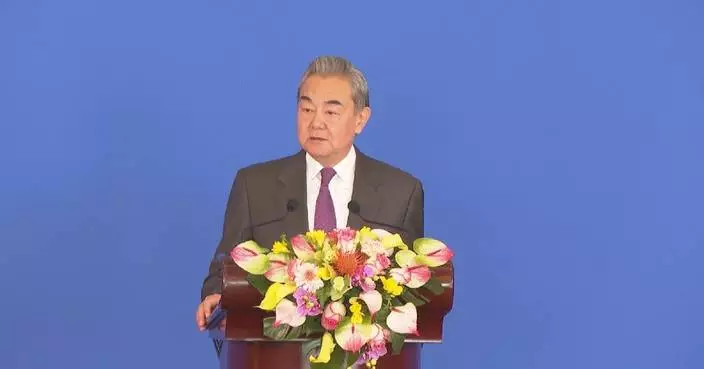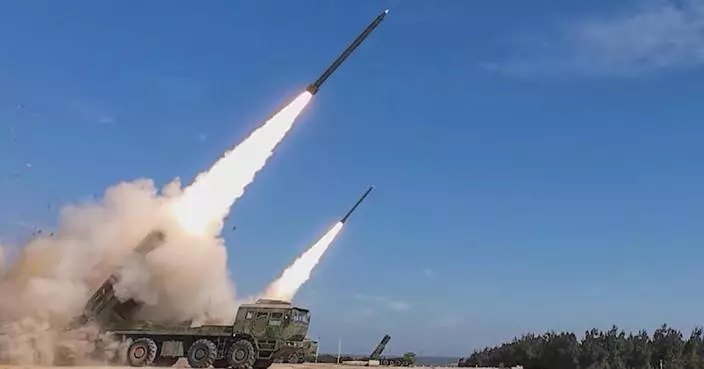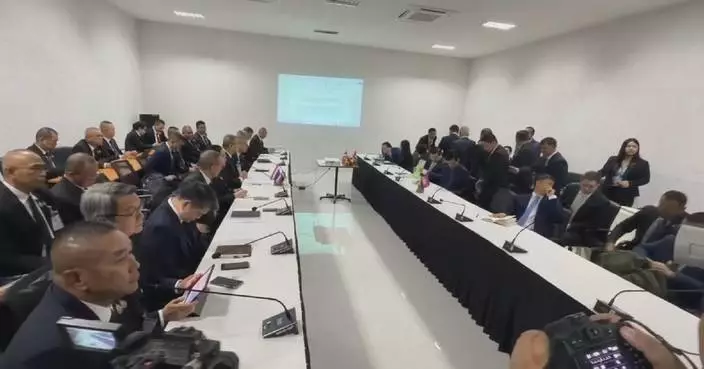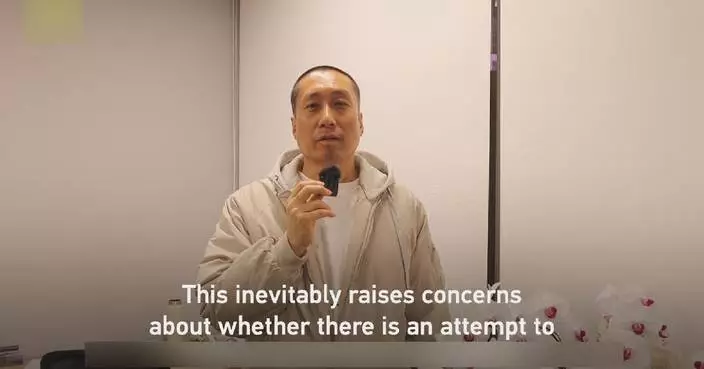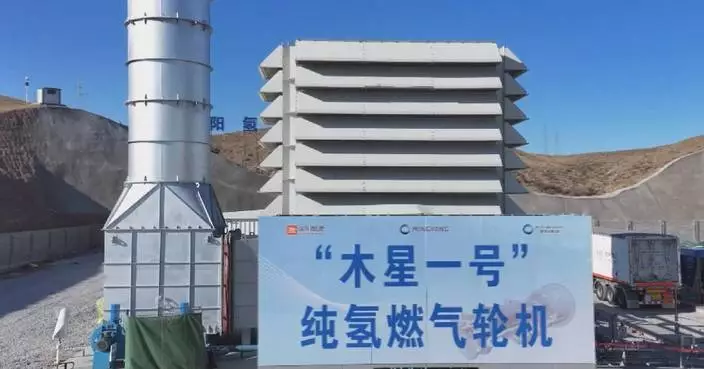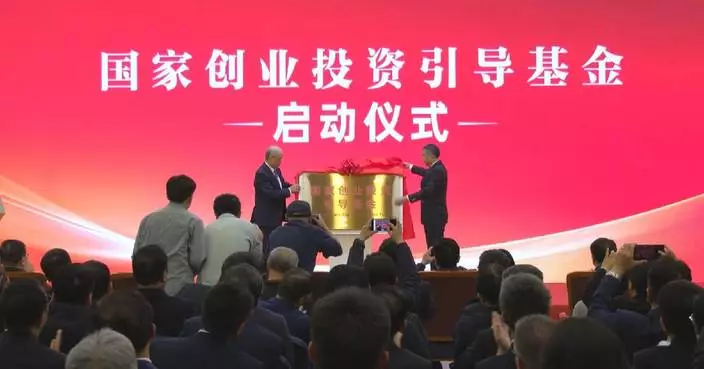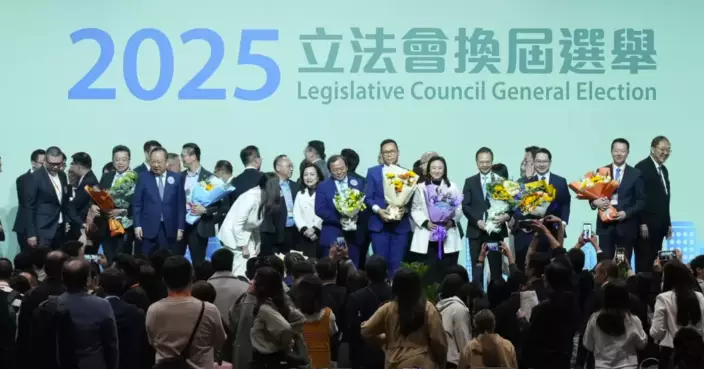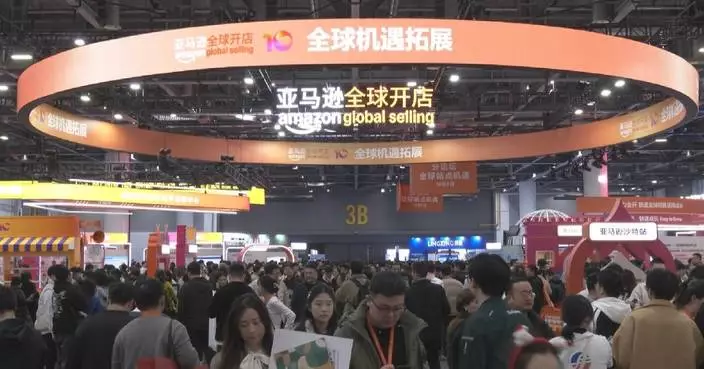Feature · News
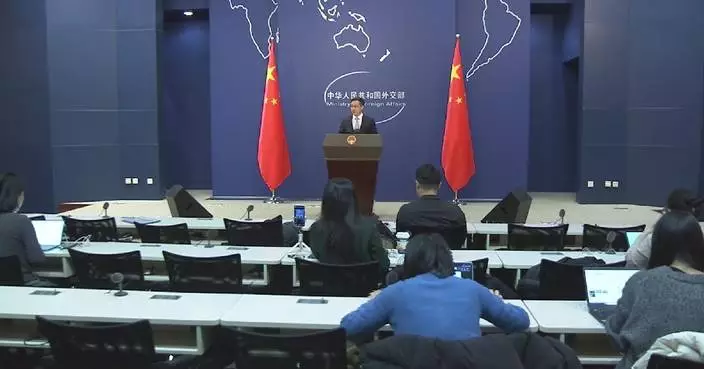
Dialogue, negotiation only viable way out for Ukraine crisis: Chinese FM spokesman
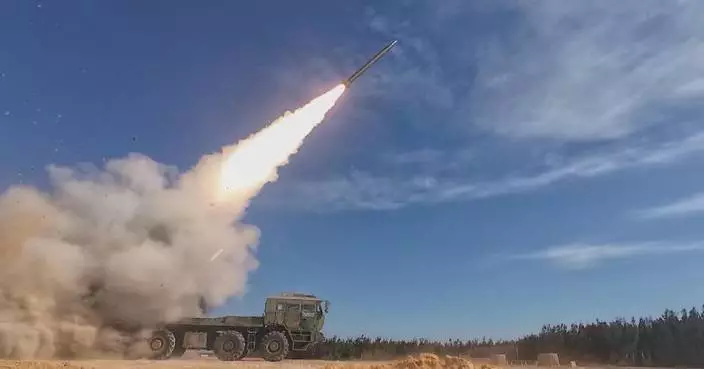
PLA forces demonstrate joint strike capabilities during 2nd day of live-fire drills around Taiwan

Texas Tech QB Behren Morton says he's '100%' for College Football Playoff against Oregon

Flu is rising rapidly, driven by a new variant. Here's what to know

Fujian coast guard conducts law enforcement patrol in waters off Taiwan Island, Matsu and Wuqiu Islands

Thieves drill into a German bank vault and steal tens of millions of euros worth of property
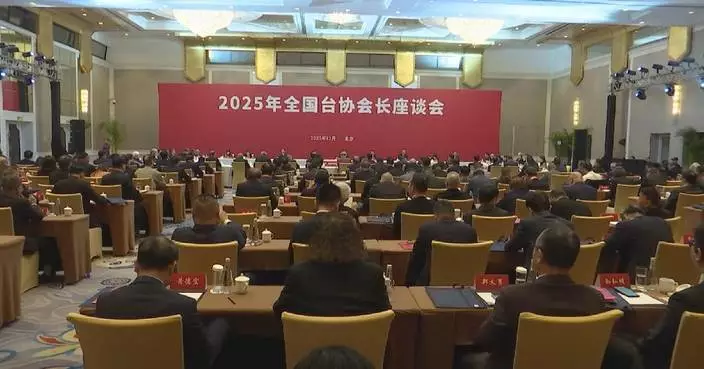
Taiwan businesses confident over greater opportunities in mainland

PLA Eastern Theater Command conducts combat readiness patrols around Taiwan Island

Three Vehicles Collided on Tai Ho Road in Tsuen Wan
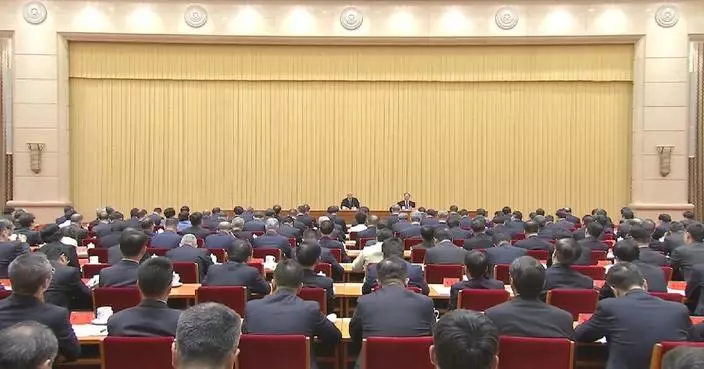
Xi calls for solidly advancing rural revitalization across the board

US commits $480m in health funding to Ivory Coast, the latest to sign 'America First' health deals

Buddhist monks persist in peace walk despite injuries as thousands follow them on social media
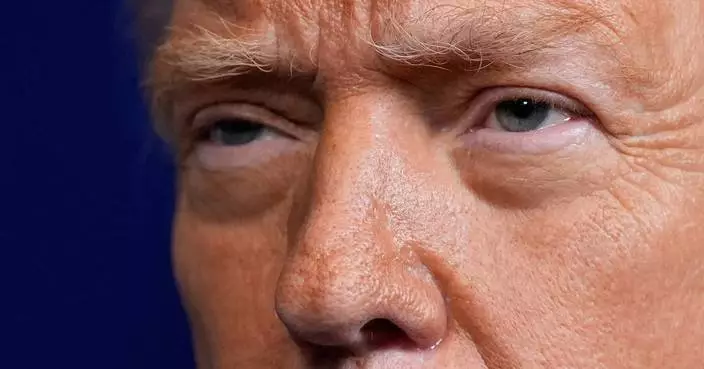
U.S. sanctions 10 people and firms from Iran and Venezuela over drone and missile trade

Iran's president says answer to attack would be harsh in apparent response to Trump warning

Meta buys startup Manus in latest move to advance its artificial intelligence efforts
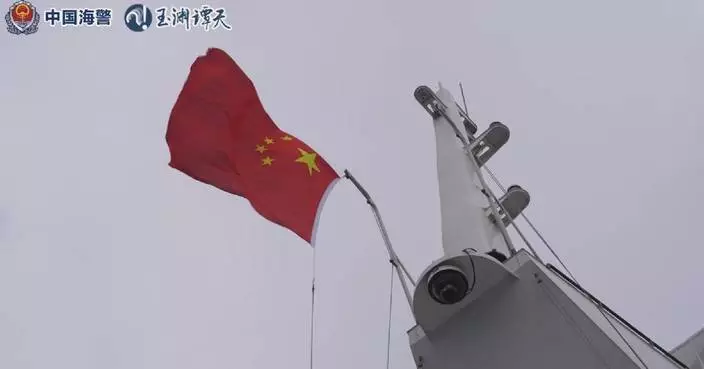
Fujian coast guard conducts law enforcement, control drills near Taiwan Island
Taiwan businesses confident over greater opportunities in mainland
PLA Eastern Theater Command conducts combat readiness patrols around Taiwan Island

Three Vehicles Collided on Tai Ho Road in Tsuen Wan
Xi calls for solidly advancing rural revitalization across the board

Dialogue, negotiation only viable way out for Ukraine crisis: Chinese FM spokesman
PLA forces demonstrate joint strike capabilities during 2nd day of live-fire drills around Taiwan

Texas Tech QB Behren Morton says he's '100%' for College Football Playoff against Oregon

Flu is rising rapidly, driven by a new variant. Here's what to know
Fujian coast guard conducts law enforcement patrol in waters off Taiwan Island, Matsu and Wuqiu Islands

Thieves drill into a German bank vault and steal tens of millions of euros worth of property

US commits $480m in health funding to Ivory Coast, the latest to sign 'America First' health deals

Buddhist monks persist in peace walk despite injuries as thousands follow them on social media

U.S. sanctions 10 people and firms from Iran and Venezuela over drone and missile trade

Iran's president says answer to attack would be harsh in apparent response to Trump warning

Meta buys startup Manus in latest move to advance its artificial intelligence efforts
Fujian coast guard conducts law enforcement, control drills near Taiwan Island
Feature·Bloggers

【What Say You?】Black Riots “comrades” Thought Ukraine Was Another “Resistance”—Then the Contract Hit

【Bastille Commentary】Green Nails? The Lie No Lawyer Would Touch

【What Say You?】How Jimmy Lai's Right-Hand Man Ran a Corporate Shakedown Operation

【Deep Blue】Trump's "Empire Strikes Back" Gambit: A Long Shot at Best

【What Say You?】Unfinished business With the “anti-Hong Kong triangle”?

【Bastille Commentary】UK's Hypocrisy on Display: Seizing Private Assets While Preaching Freedom

Huge crowds join funeral prayers for former Prime Minister Khaleda Zia in Bangladesh
- Bulgaria to become the 21st country to join the euro, deepening EU ties despite fears
- Junta leader is declared the winner of Guinea’s presidential election
- Fu Pai Ejiao Certified as the World’s Oldest Ejiao Brand by Lawrence World Records
- See the world in vertical: Top photos by AP photojournalists
- Thailand releases 18 Cambodian prisoners of war as part of ceasefire agreement
- Trump administration says it's freezing child care funds to Minnesota after series of fraud schemes
- Zohran Mamdani is set to be sworn in as mayor as NYC rings in the New Year
- California delays revoking 17,000 commercial driver's licenses until March after immigrants sue
- Georgia judge tosses landmark racketeering charges against 'Cop City' protesters

China's service imports, exports up 7.1 pct in 11 months
- China's non-manufacturing PMI at 50.2 in December amid market optimism
- Multiple countries reaffirm their commitment to one-China principle
- China's manufacturing PMI enters expansion zone in December as confidence rebounds
- Caretaker carries panda cubs under both arms into sunshine
- Poll findings in Taiwan reflect people's strong dissatisfaction with DPP authorities: spokesperson
- Chinese leaders attend New Year gala featuring traditional opera
- Xi, Putin exchange New Year greetings
- PLA releases video showcasing combat readiness in drills around Taiwan
- China launches twin satellites for space object detection technology tests

HTX Hot Listings Weekly Recap (Dec 22-28) Sees ZBT Surge 127%, PAYAI Rally 103% | AI and Privacy Narratives Reignite
- GAC Receives Industry's First Vehicle Data Security Management System Certificate
- Hecto Media Launches AI-Powered Multilingual K-Culture Platform, 'K-snapp'
- From Livestock to Learning: Kansa's Story
- Pepsi & 7UP Team Up with Disney on Zootopia 2, Sparking Fresh Wave of Crossover Youthful Energy
- LA ROCHE-POSAY ANNOUNCES SUN YINGSHA AS BRAND SPOKESPERSON (SERUM & MASK) AND GLOBAL PARTNER
- DL Securities Secures Virtual Asset Trading License
- Optoma Expands Video Conferencing Ecosystem with Industry-Leading Partners
- BBSB International Limited Proposes Listing on GEM of HKEx to raise a maximum of approximately HK$87 million by way of Share Offer
- 76 Asian Agri Partner Cooperatives in Riau and Jambi Receive Sustainable Palm Oil Premiums, Strengthening Smallholder Livelihoods

If someone's always late, is it time blindness, or are they just being rude?
- The year's first meteor shower and supermoon clash in January skies
- What's inside Mexico's Popocatépetl volcano? Scientists obtain first 3D images
- 2025 was one of three hottest years on record, scientists say
- Trying to improve your health and wellness in 2026? Keep it simple
- The moon and sun figure big in the new year's lineup of cosmic wonders
- New York subway ends its MetroCard era and switches fully to tap-and-go fares
- Foods with healthy-sounding buzzwords could be hiding added sugar in plain sight
- Virtual reality opens doors for older people to build closer connections in real life
- Pro-Russian hackers claim cyberattack on French postal service

In a breakneck digital era, the ancient art of Peking opera works hard to keep flourishing
- LOCALIZE IT: Marching bands, equestrian units from several states featured in Rose Parade on Jan. 1
- Roses in the rain? New Year's Day parade in Pasadena gets wet forecast. Bundle up for NYC ball drop
- Where are the wackiest New Year's Eve drops in the US?
- France grants citizenship to George and Amal Clooney and their twins Ella and Alexander
- Brigitte Bardot's funeral will be held next week in French Riviera resort of Saint-Tropez
- Hollywood stars Idris Elba, Cynthia Erivo recognized in New Year's honor's list
- Tyler Perry's accuser sent messages of gratitude and friendship years after alleged assault
- Rain could be an unwelcome entry at the Rose Parade on New Year's Day. Bundle up for NYC ball drop
- Movie Review: 'The Plague' dives into a sink-or-swim water polo camp

Seals and Payne rally TCU past No. 16 USC for 30-27 overtime victory in Alamo Bowl
- Tocchet coaches Flyers to 6-3 win over Canucks in return to Vancouver
- Leonard scores 33 as Clippers extend win streak to 5 with 131-90 rout of Kings
- LeBron James loses on his 41st birthday as Cunningham leads the Pistons past the Lakers, 128-106
- Rookie VJ Edgecombe drops 3-pointer with seconds left in OT to give 76ers victory over Grizzlies
- Derrick White has 27 points and 7 blocks to lead Celtics past Jazz 129-119
- Edgecombe's 3-pointer in closing seconds gives 76ers a 139-136 overtime victory over Grizzlies
- Angels third baseman Anthony Rendon agrees to restructure final year of his $245 million contract
- A's announce Soderstrom deal at future Las Vegas home
- Mantha scores 2 goals to help the Penguins beat the Hurricanes 5-1

Government reports HK$18 billion deficit for eight months ending November 2025, fiscal reserves at HK$636.3 billion
- Hong Kong Customs Seizes $7 Million in Suspected Smuggling Operation Involving Ocean-Going Vessel
- HKMA Releases November 2025 Data on Foreign Currency Reserves and Liquidity
- Hong Kong Deposits Rise 0.7% in November 2025, Driven by Currency Increases and Investment Activities
- HKMA Reports Exchange Fund Assets Decline to HK$4.1 Trillion as of November 2025
- Hong Kong's Growing IP Services Talent Pool Boosts Regional Trading Centre Development in 2024
- Government Appoints Six New Members to Constitution and Basic Law Promotion Steering Committee for 2026 Term
- Government Reappoints 13 Members to Patriotic Education Working Group for Two-Year Term Starting January 2026
- Hong Kong Launches Subsidy Program for Life and Health Technology Research Institute Collaboration
- HYAB Announces New Appointments to Youth Square Management Advisory Committee for 2026-2027 Term
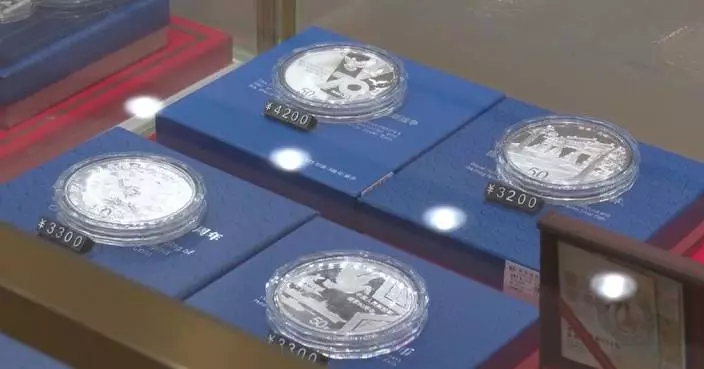
Gold, silver rebound after sharp sell-off
- Ten countries calls for removal of restrictions on Gaza humanitarian aid
- Tensions in Yemen lead to state of emergency following Saudi-led airstrike
- Iranian president warns of "harsh" response after Trump's threats
- Crude futures settle lower
- U.S. dollar ticks up
- Eurostar partially resumes train services on only railway link between UK, continental Europe
- U.S. stocks close lower
- Russia, Ukraine exchange accusations over alleged drone attack on Putin's residence
- Oreshnik missile system assumes combat duty in Belarus: Russian Defense Ministry
Category · News

Huge crowds join funeral prayers for former Prime Minister Khaleda Zia in Bangladesh

Bulgaria to become the 21st country to join the euro, deepening EU ties despite fears

Junta leader is declared the winner of Guinea’s presidential election

Government reports HK$18 billion deficit for eight months ending November 2025, fiscal reserves at HK$636.3 billion

Fu Pai Ejiao Certified as the World’s Oldest Ejiao Brand by Lawrence World Records

Hong Kong Customs Seizes $7 Million in Suspected Smuggling Operation Involving Ocean-Going Vessel

See the world in vertical: Top photos by AP photojournalists

In a breakneck digital era, the ancient art of Peking opera works hard to keep flourishing

HTX Hot Listings Weekly Recap (Dec 22-28) Sees ZBT Surge 127%, PAYAI Rally 103% | AI and Privacy Narratives Reignite
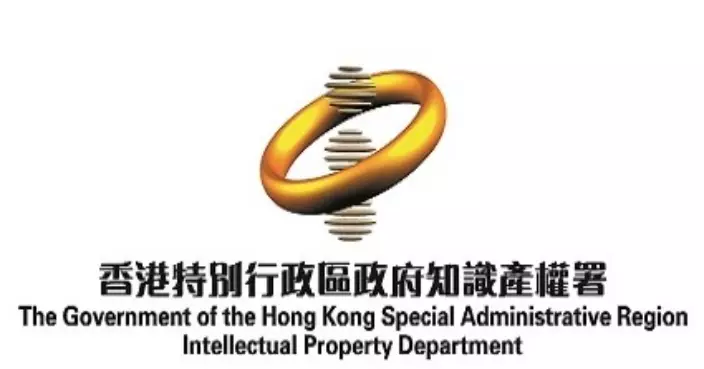
Hong Kong's Growing IP Services Talent Pool Boosts Regional Trading Centre Development in 2024
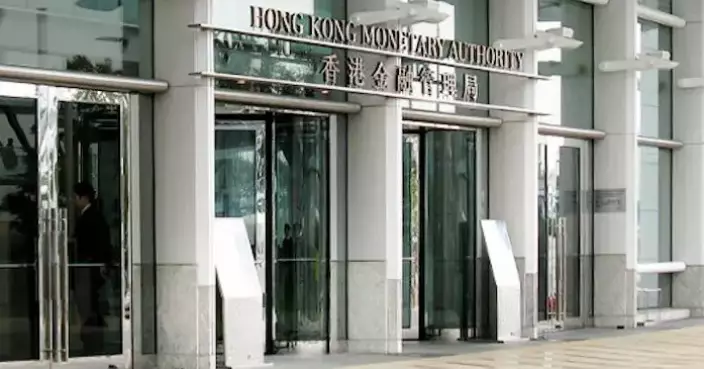
HKMA Reports Exchange Fund Assets Decline to HK$4.1 Trillion as of November 2025
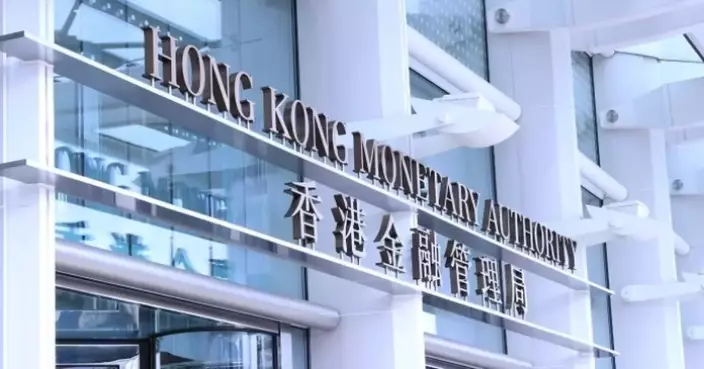
HKMA Releases November 2025 Data on Foreign Currency Reserves and Liquidity

Hong Kong Deposits Rise 0.7% in November 2025, Driven by Currency Increases and Investment Activities

Seals and Payne rally TCU past No. 16 USC for 30-27 overtime victory in Alamo Bowl
China's service imports, exports up 7.1 pct in 11 months
China's non-manufacturing PMI at 50.2 in December amid market optimism

Government Appoints Six New Members to Constitution and Basic Law Promotion Steering Committee for 2026 Term
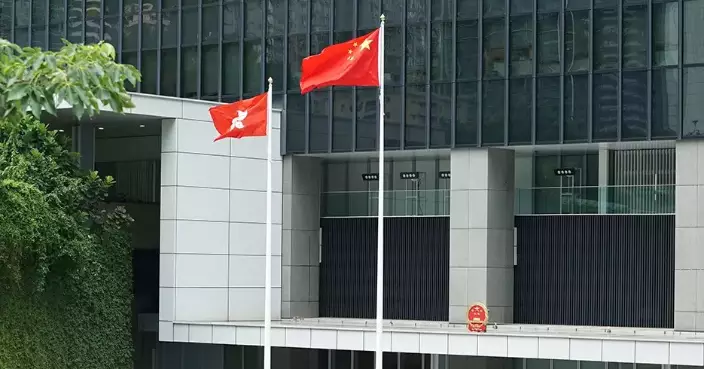
Government Reappoints 13 Members to Patriotic Education Working Group for Two-Year Term Starting January 2026
Gold, silver rebound after sharp sell-off

Thailand releases 18 Cambodian prisoners of war as part of ceasefire agreement
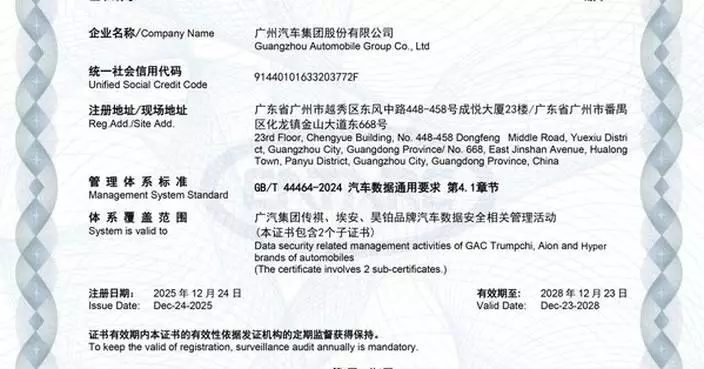
GAC Receives Industry's First Vehicle Data Security Management System Certificate

Tocchet coaches Flyers to 6-3 win over Canucks in return to Vancouver
Ten countries calls for removal of restrictions on Gaza humanitarian aid
Multiple countries reaffirm their commitment to one-China principle
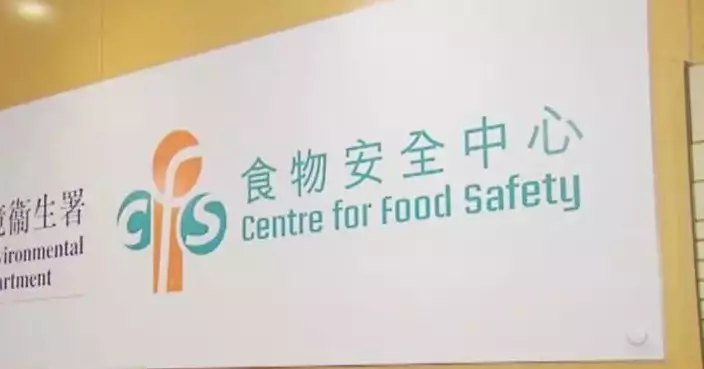
CFS Report: 99.9% Food Samples Satisfactory, Three Items Found Contaminated

Hong Kong Launches Subsidy Program for Life and Health Technology Research Institute Collaboration

HYAB Announces New Appointments to Youth Square Management Advisory Committee for 2026-2027 Term
China's manufacturing PMI enters expansion zone in December as confidence rebounds

Leonard scores 33 as Clippers extend win streak to 5 with 131-90 rout of Kings

LeBron James loses on his 41st birthday as Cunningham leads the Pistons past the Lakers, 128-106
Tensions in Yemen lead to state of emergency following Saudi-led airstrike

Hecto Media Launches AI-Powered Multilingual K-Culture Platform, 'K-snapp'
Caretaker carries panda cubs under both arms into sunshine

Trump administration says it's freezing child care funds to Minnesota after series of fraud schemes
Poll findings in Taiwan reflect people's strong dissatisfaction with DPP authorities: spokesperson

Rookie VJ Edgecombe drops 3-pointer with seconds left in OT to give 76ers victory over Grizzlies

If someone's always late, is it time blindness, or are they just being rude?

Zohran Mamdani is set to be sworn in as mayor as NYC rings in the New Year

From Livestock to Learning: Kansa's Story

Derrick White has 27 points and 7 blocks to lead Celtics past Jazz 129-119
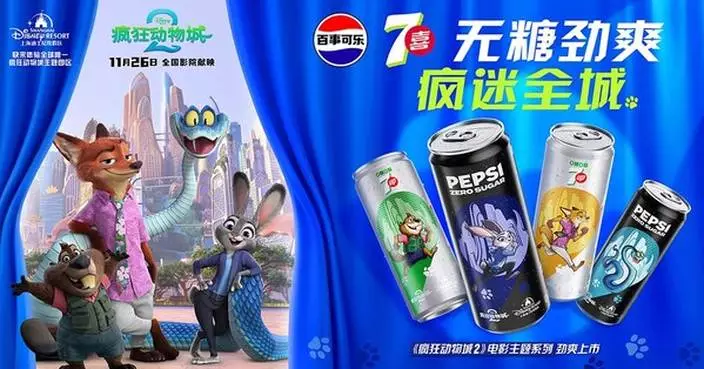
Pepsi & 7UP Team Up with Disney on Zootopia 2, Sparking Fresh Wave of Crossover Youthful Energy
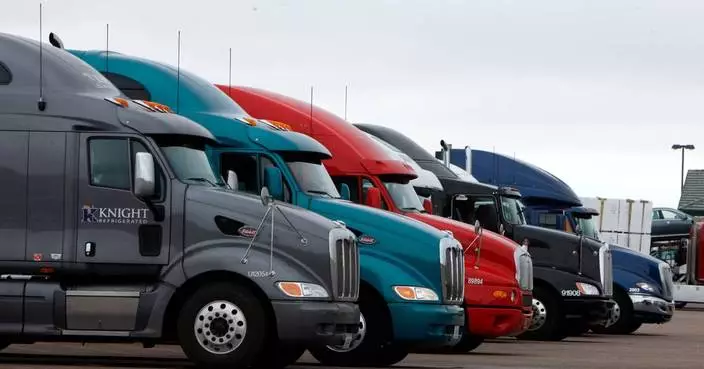
California delays revoking 17,000 commercial driver's licenses until March after immigrants sue
Iranian president warns of "harsh" response after Trump's threats

Georgia judge tosses landmark racketeering charges against 'Cop City' protesters

Government Welcomes Annual Report on Securities and Futures Commission's Process Review Panel Efforts for 2024-25

Hong Kong Unveils 10-Year Biodiversity Strategy to Enhance Nature Conservation and Sustainable Development

Edgecombe's 3-pointer in closing seconds gives 76ers a 139-136 overtime victory over Grizzlies

Former US Sen. Ben Nighthorse Campbell, of Colorado, dies at 92

CIA behind strike at Venezuelan dock that Trump claims was used by drug smugglers, AP sources say
Crude futures settle lower
U.S. dollar ticks up

Angels third baseman Anthony Rendon agrees to restructure final year of his $245 million contract

LA ROCHE-POSAY ANNOUNCES SUN YINGSHA AS BRAND SPOKESPERSON (SERUM & MASK) AND GLOBAL PARTNER

New Members Appointed to Commission on Children, Effective January 2026

DL Securities Secures Virtual Asset Trading License

Police Implement Traffic Controls for New Year's Eve Celebrations in Hong Kong. Plan Your Journey in Advance
Eurostar partially resumes train services on only railway link between UK, continental Europe
Chinese leaders attend New Year gala featuring traditional opera

A's announce Soderstrom deal at future Las Vegas home
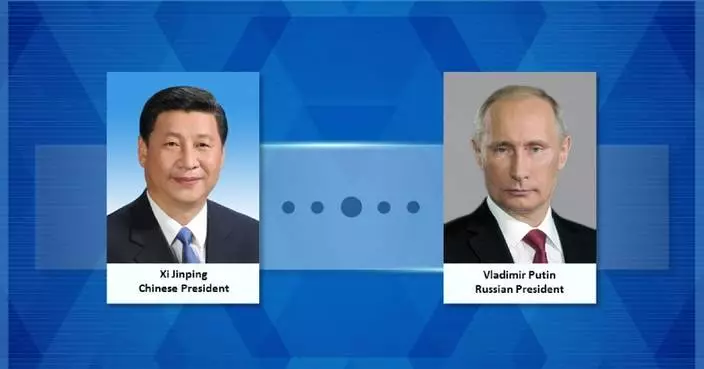
Xi, Putin exchange New Year greetings
U.S. stocks close lower

Mantha scores 2 goals to help the Penguins beat the Hurricanes 5-1
PLA releases video showcasing combat readiness in drills around Taiwan
Russia, Ukraine exchange accusations over alleged drone attack on Putin's residence

Kendall Coyne Schofield scores twice, Hensley stops 31 as Frost cruise to 5-1 win over Sceptres
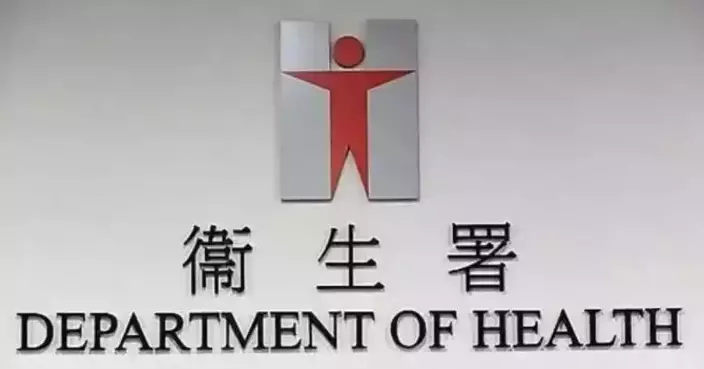
Hong Kong's Colorectal Cancer Screening Program Opens to Residents Born 1950-1976 Starting January 2026

Canadiens rally late in regulation, spoil Marchand's night with 3-2 overtime win over Panthers

Woll earns 1st shutout of the season as Maple Leafs send Devils to their 4th straight loss

New Trade and Industry Advisory Board Members Announced for 2026-2027 Term

Optoma Expands Video Conferencing Ecosystem with Industry-Leading Partners

Panthers pay tribute to Brad Marchand's 1,000th point with pregame ceremony

Six-time IndyCar champion Scott Dixon receives a knighthood from New Zealand

Former Republican Sen. Jon Kyl of Arizona announces dementia diagnosis

Like Mother, Like Daughter: Education Cannot Wait-supported UNICEF Accelerated Learning Programme enables a mother and daughter affected by floods and other crises to return to school in Pakistan

Hong Kong Launches Digital Corporate Identity Sandbox to Boost Digital Transformation for Corporations

BBSB International Limited Proposes Listing on GEM of HKEx to raise a maximum of approximately HK$87 million by way of Share Offer

76 Asian Agri Partner Cooperatives in Riau and Jambi Receive Sustainable Palm Oil Premiums, Strengthening Smallholder Livelihoods

LIV Golf still waiting on approval from world ranking. OWGR reduces point for 54-hole events
China launches twin satellites for space object detection technology tests
Oreshnik missile system assumes combat duty in Belarus: Russian Defense Ministry

Mali and Burkina Faso impose retaliatory travel ban on US nationals

ICE doesn't plan to detain Kilmar Abrego Garcia again as long as judge's order banning it stands

A forgotten chapter: The stories of Allied POWs in Nagasaki during the atomic bombing
Russia claims control over 2 more settlements while Ukraine reports repelling dozens of Russian attacks


